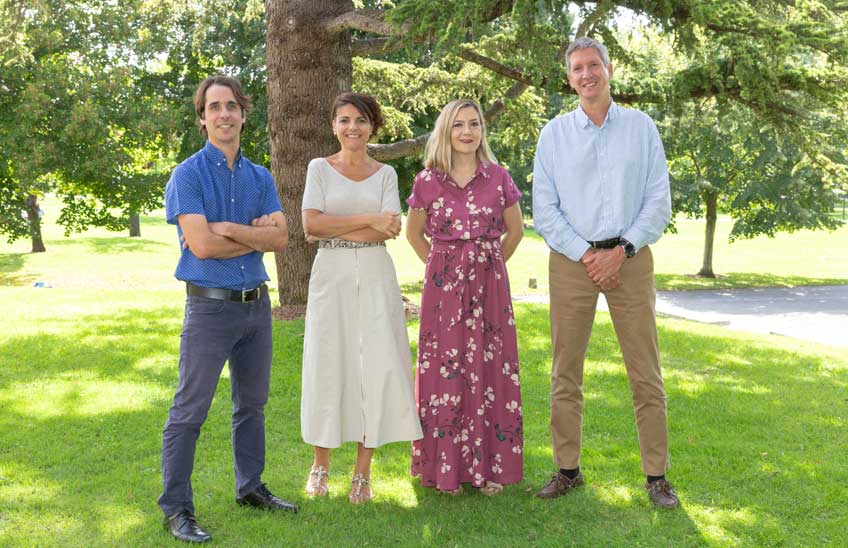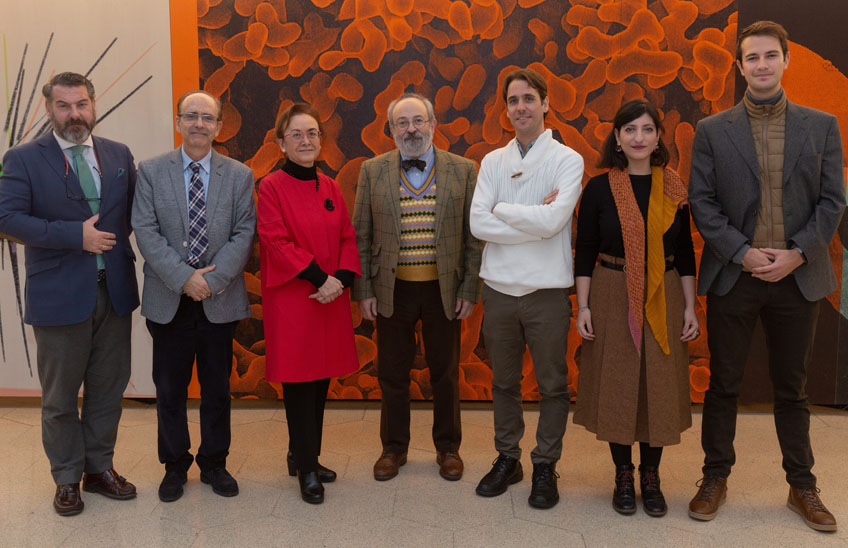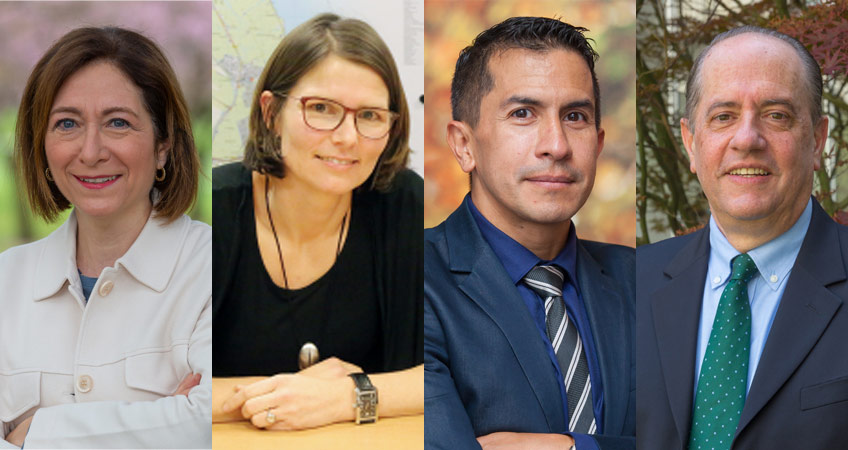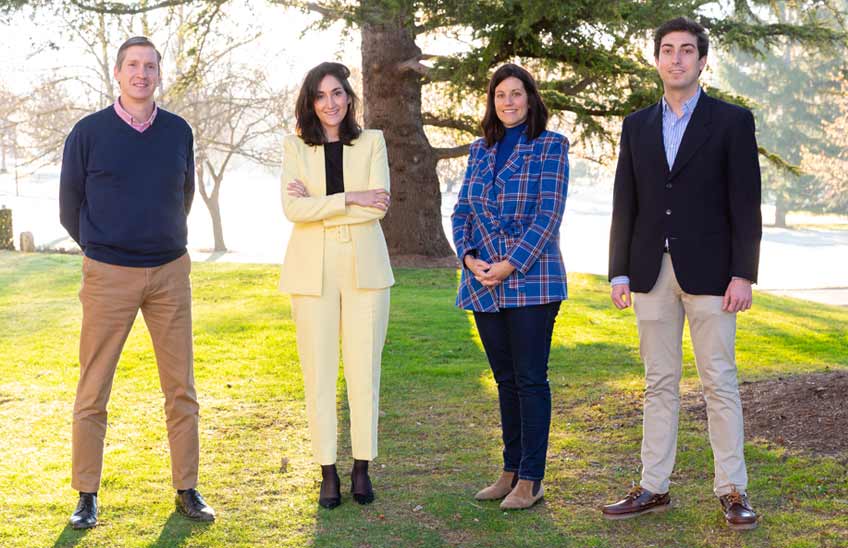Does neuroscience support Montessori? An ICS publication opens a dialogue between the pillars of this method educational and neurodevelopment.
The article has been written by Catherine L'Ecuyer, collaborator of the center and doctor by the School of Education and Psychology, and the researchers of the group 'Mente-cerebro' Javier Bernácer and Fran Güell.
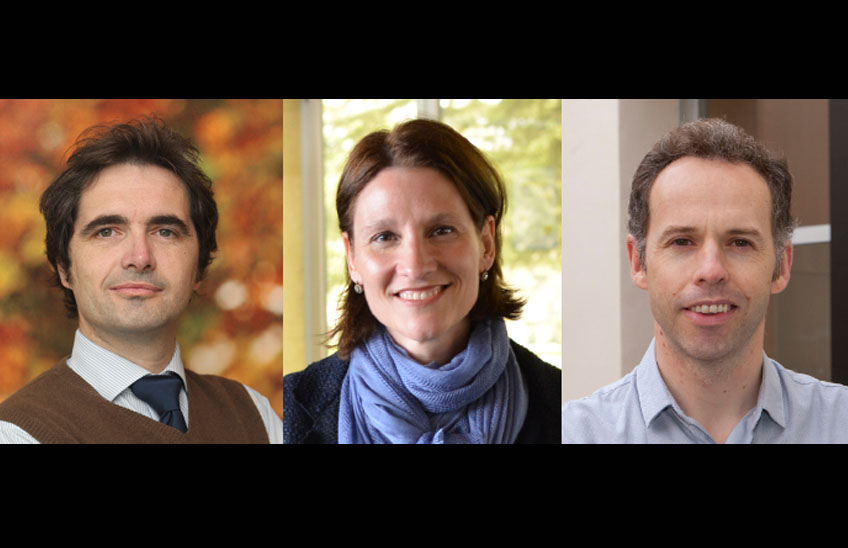
FotoManuelCastells/Fran Güell, Catherine L'Ecuyer and Javier Bernácer, authors of article.
25 | 01 | 2021
A scientific article of the Institute for Culture and Society (ICS) of the University of Navarra puts in dialogue four of the pillars of the method educational Montessori, in the infant stage, with the current theories of neurodevelopment. graduate Four Pillars of the Montessori Method and Their Support by Current Neuroscience, has been developed by Catherine L'Ecuyer, collaborator of the center and PhD from the School of Education and Psychology, and the researchers of the group 'Mind-brain' of the ICSJavier Bernácer and Fran Güell. It has been published in the journal Mind, Brain and Education.
From agreement with Maria Montessori, author of this theory, preschool children should be offered a prepared environment that contributes to sensory Education through spontaneous repetition with a purpose. ICS researchers claim that this statement is consistent with neurodevelopmental concepts, such as early development of the sensory and motor cortexes or synaptic pruning in brain areas related to attention.
The article states that Montessori's idea of "offering children of that age a beautiful, simple, real and organized space" could be "the most suitable option for a healthy development ".
This method also emphasizes the importance of the sensory Education for the development of children. According to work, this idea fits with the proposal that learning, as well as the brain changes associated with it, must go hand in hand with the development of the nervous system that naturally occurs in the child.
Sensitive and critical periods
Montessori was the first to introduce the concept of 'sensitive periods' in the field educational. As the authors explain, it is necessary to make the distinction between 'sensitive period'-optimal moment for learning-, and 'critical period'-unrepeatable windowof opportunity for learning or development. Although Montessori did not make this distinction initially, she included it in her later writings.
According to the 'Mind-brain' experts, some researchers and teachers assume that there are critical periods in the nervous system for development and learning. However, they point out that the most recent findings point to the fact that learning is related to sensitive, rather than critical, periods. "This is essential to dismantle some frequent 'neuromyths' in Education," they point out, such as that the child needs an environment enriched in stimuli for promote learning, or that the brain is open to learning only in the first three years. Both this method educational and neuroscience point to the incorrectness of these statements.
Catherine L'Ecuyer, collaborator of group 'Mente-cerebro', has also published the book Montessori ante el bequest pedagógico de Rousseau, fruit of her doctoral thesis defended at the School of Education and Psychology of the University of Navarra under the direction of José Ignacio Murillo, researcher main of this group of the ICS. The project of research that has culminated this publication has been funded by the SM Foundation.
Positive habits and Building of personality.
Likewise, the Revista Española de Pedagogía has recently collected a article of both under the degree scroll El approach teleológico de la Education Montessori y sus implicaciones. In it they review the fundamental pillars of this pedagogy, such as, for example, the prepared environment, error control, the absorbing mind,sustained attention, the development of the personality, repetition with purpose, perfective activity, the pleasure of learning and the inclination of rational nature towards its end.
For Montessori, "human activity is naturally oriented towards an end and ordered by reason," the authors state in the abstract, "The end of Education is the child himself, since it consists in perfecting the agent, bringing to the act in the child what in him is only in potential.
They point out that "the child's eagerness to build his personality occurs through the spontaneous activity of his absorbing mind and repetition with purpose, which generates positive habits". Hence, "the prepared environment and the control of error are crucial".
"The perfective activity, carried out with the right and necessary amount of stimuli, makes the child find rest in voluntary acts carried out with sense and without hindrances", they assure. Along these lines, they conclude that "the resulting pleasure is not understood as a mere experience, but in relation to a natural activity directed towards its end".

